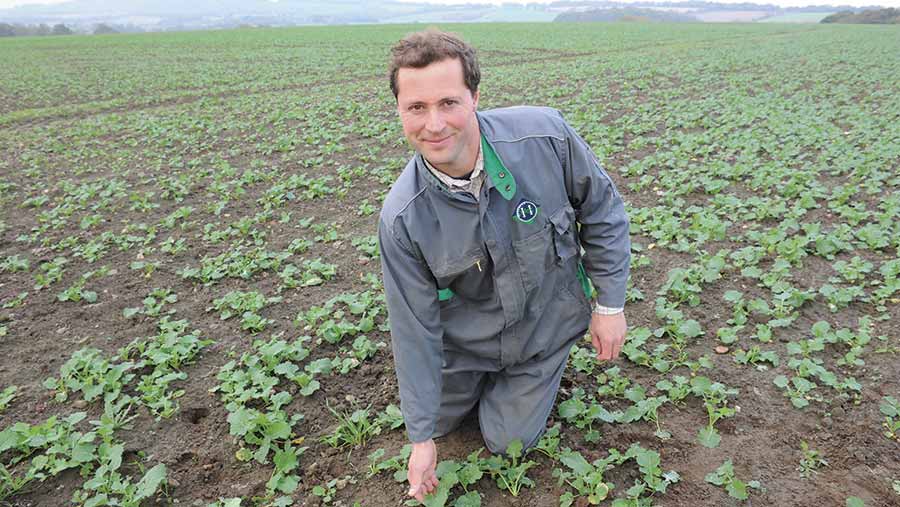Farmer Focus: Rain kick-starts OSR and weed germination
 David Butler © Hugh Nutt
David Butler © Hugh Nutt The combine has finally been put away and this always brings mixed emotions.
Relief that it is still in one piece to fight another day and that crops are safely gathered in, but also a sense of melancholy that summer is over and the challenges of a new season have begun.
Combines frustrate me; they spend most of the year parked in inconvenient places, furiously depreciating while doing nothing except acting as a rodent magnet.
Traditionally we have changed our combine regularly, but this year the reality check brought by eye-watering dealer’s quotes are such that we will have to explore new options, probably involving stretching the life of our current model while seeking additional help from neighbours with spare combine capacity.
See also: Read more from our Arable Farmer Focus writers
Perhaps one upside of leaving the EU will be the ability to lower costs again by opting out of the demanding new EU tier emissions constraints, which massively add to engine costs at the same time as lowering fuel efficiency and performance. Taxis in city centres need emission control, not combines in isolated fields.
On 27 August we bore the brunt of an exceptional thunderstorm with associated flash flooding. Luckily newly drilled oilseed rape seed-beds held together reasonably well and had a good moisture kick to initiate germination. The crop has subsequently grown away vigorously.
The soak of such storms also helps to encourage weed germination on stale seed-beds, and on balance probably does more good than harm if soil erosion isn’t an issue and BT repair the phones.
Cropping decisions have now turned to cereal drilling and cultivations. I suffer from restless drilling syndrome, so inevitably we have already planted some early wheat on fields with a lower blackgrass risk.
The hope is that this will translate into some wheat that can be harvested earlier next season while retaining quality.
After the Brexit vote, the future evolution of farm support is now under the spotlight. The recently released State of Nature report, rather unfairly still using 1970 as a base year, is a clear attempt to push an environmental agenda to the fore while the government grapples with where to source extra funding for an NHS in deepening financial crisis.
Food security is in danger of being drowned out in all this noise, not helped by another season of record global harvests.
At the same time, others have been claiming food is too expensive. Support payments are not going to stay unchanged for long.
David Butler farms just south of Marlborough in Wiltshire in partnership with his parents. He also runs a contracting company and farms about 870ha of combinable crops alongside a herd of 280 dairy cows.

